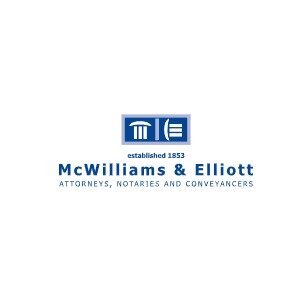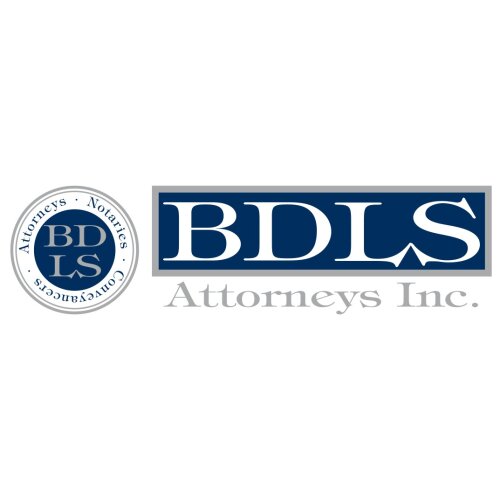Best Debt & Collection Lawyers in Port Elizabeth
Share your needs with us, get contacted by law firms.
Free. Takes 2 min.
List of the best lawyers in Port Elizabeth, South Africa
About Debt & Collection Law in Port Elizabeth, South Africa
South African's debt and collection laws apply nationwide, including in Port Elizabeth. They are outlined in the National Credit Act (NCA), and enforced by the National Credit Regulator. These laws give consumers certain rights and protections, and set out rules for how creditors can enforce debts and collect money owed to them. In Port Elizabeth, as with the rest of South Africa, many people often find themselves struggling with debt, and dealing with debt collectors who are seeking to recover what’s owed to them.
Why You May Need a Lawyer
When facing debt collection issues, individuals often need professional legal advice. Reasons may include being sued by debt collectors, experiencing harassment from collectors, needing guidance on how to navigate through debt issues, or simply requiring help in understanding complex debt and collection laws. On the other hand, businesses may also need lawyers to facilitate legal debt recovery, draw up contracts which comply with South African laws, and advise on other necessary legal aspects of their debt collection strategies.
Local Laws Overview
The most relevant debt collection laws in South Africa stem from the National Credit Act of 2005 which provides a framework for responsible lending, and outlines debt recovery procedures. The NCA stipulates that consumers should be informed of their rights and all details associated with the debt. It also restricts certain practices by debt collectors, such as contacting individuals at unreasonable times or places, making threats or using offensive language, and causing emotional distress. In addition, the National Debt Collection Act 114 of 1998 regulates the process of collecting debts, and mandates the registration of all debt collectors.
Frequently Asked Questions
1. Can a debt collector come to my house to collect debt?
As per South African legal guidelines, a debt collector must respect your privacy and cannot come to your house unless they have a court order to do so. They cannot harass you or use intimidation tactics to recover debts.
2. What can I do if I'm getting harassed by debt collectors?
If you feel that a debt collector is harassing you or violating your rights, you can lodge a complaint with the Council for Debt Collectors or seek legal counsel.
3. What happens if I can't pay my debt?
If you are unable to pay your debts, you may consider applying for debt counselling. This is a regulated process that involves negotiating with your creditors to lower your monthly payments and extending the loan period.
4. How long can a creditor pursue a debt?
According to South African law, creditors have three years to pursue a debt from the date when the debt became due.
5. What if I disagree with the amount that's being claimed?
If you believe the debt is incorrect, you have the right to dispute it. It’s advisable to seek legal advice in such instances to ensure you are navigating the process accurately.
Additional Resources
For more information or further assistance, you may reach out to the National Credit Regulator (NCR) or the Council for Debt Collectors. They provide resources and assistance to both consumers and businesses dealing with debt matters. Alternatively, the Legal Aid South Africa and various law clinics across the country offer free or low-cost legal help for those who can't afford legal fees.
Next Steps
If you are dealing with debt or collection issues and require legal assistance, it is recommended to seek out a lawyer who specialises in this field. They can help you understand your rights, provide tailored advice, and guide you through necessary legal procedures. A lawyer can also represent you in court if necessary. Remember to document all interactions with creditors or debt collectors and maintain records of proof of all payments made.
Lawzana helps you find the best lawyers and law firms in Port Elizabeth through a curated and pre-screened list of qualified legal professionals. Our platform offers rankings and detailed profiles of attorneys and law firms, allowing you to compare based on practice areas, including Debt & Collection, experience, and client feedback.
Each profile includes a description of the firm's areas of practice, client reviews, team members and partners, year of establishment, spoken languages, office locations, contact information, social media presence, and any published articles or resources. Most firms on our platform speak English and are experienced in both local and international legal matters.
Get a quote from top-rated law firms in Port Elizabeth, South Africa — quickly, securely, and without unnecessary hassle.
Disclaimer:
The information provided on this page is for general informational purposes only and does not constitute legal advice. While we strive to ensure the accuracy and relevance of the content, legal information may change over time, and interpretations of the law can vary. You should always consult with a qualified legal professional for advice specific to your situation.
We disclaim all liability for actions taken or not taken based on the content of this page. If you believe any information is incorrect or outdated, please contact us, and we will review and update it where appropriate.









